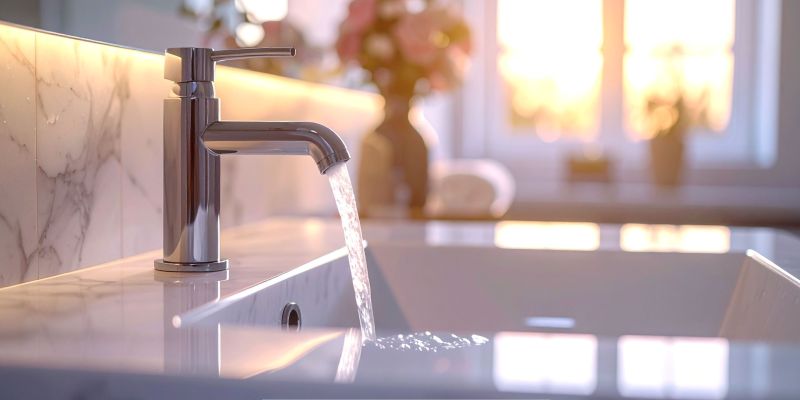Water conservation is crucial for both environmental sustainability and reducing household expenses. The bathroom is one of the largest water-consuming areas in a home, making it the perfect place to implement water-saving strategies. Here are some effective tips to make your bathroom more eco-friendly while lowering your water bill.
1. Install Water-Efficient Fixtures
One of the most effective ways to save water in the bathroom is by upgrading to water-efficient fixtures. Look for products with the WaterSense label, which signifies EPA-certified efficiency. Consider the following:
- Low-flow toilets use significantly less water per flush than traditional models.
- Water-saving showerheads can reduce water usage by up to 50% without compromising pressure.
- Faucet aerators help reduce the flow rate while maintaining functionality.
2. Fix Leaks Promptly
Even small leaks can waste hundreds of gallons of water each year. Check for:
- Dripping faucets, which can waste up to 3,000 gallons annually.
- Leaky toilets, often detectable by adding a few drops of food coloring to the tank—if the color appears in the bowl without flushing, there’s a leak.
- Pipe leaks, which may require a plumber if the issue is severe.
3. Turn Off the Tap
A simple yet effective habit is turning off the tap when it’s not in use. For example:
- Turn off the faucet while brushing your teeth to save up to 4 gallons per minute.
- Use a cup for rinsing while shaving instead of letting the water run.
4. Take Shorter Showers
Reducing shower time can lead to substantial water savings. A standard showerhead uses about 2.5 gallons per minute, meaning a 10-minute shower consumes 25 gallons. Aim for a 5-minute shower or switch to a timer to monitor water usage.
5. Reuse and Repurpose Water
Consider reusing water where possible:
- Collect running water while waiting for it to heat up and use it for watering plants.
- Use greywater systems to repurpose gently used water for toilet flushing or irrigation.
6. Choose Eco-Friendly Bathing Habits
- Opt for showers over baths, as a full bathtub can use up to 70 gallons of water, while a short shower typically consumes less than half that amount.
- If you prefer baths, fill the tub only halfway to reduce excess water consumption.
7. Upgrade to a Dual-Flush Toilet
Dual-flush toilets provide two flushing options—one for liquid waste and another for solid waste—helping you reduce water usage by up to 67% per flush. If replacing your toilet isn’t an option, placing a filled water bottle inside the tank can help reduce the amount of water used per flush.
8. Use Water-Smart Cleaning Practices
- Instead of running the tap continuously, use a bucket to rinse cleaning tools.
- Wipe down sinks and tubs with eco-friendly cleaning products that require minimal rinsing.
9. Educate Household Members
Encourage everyone in your home to practice water-saving habits. Teaching children and guests about these methods can lead to long-term conservation efforts.
Final Thoughts
Implementing these water-saving tips in your bathroom is a simple yet impactful way to contribute to a greener planet. By upgrading fixtures, fixing leaks, and being mindful of daily habits, you can reduce water waste, lower utility costs, and create a more sustainable home. Start making small changes today for a big impact tomorrow!









